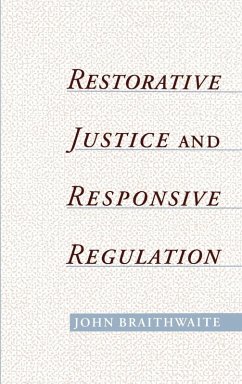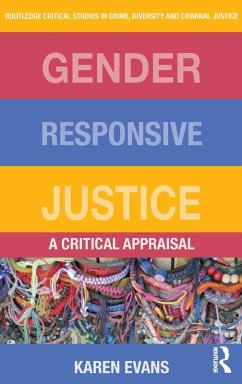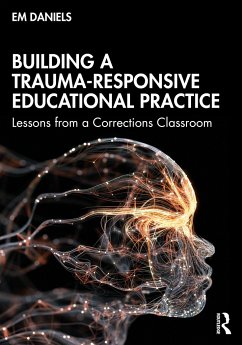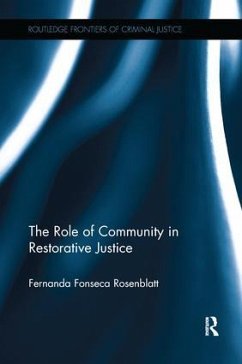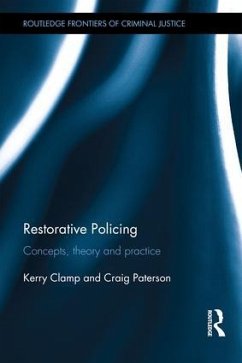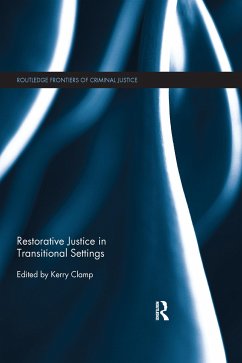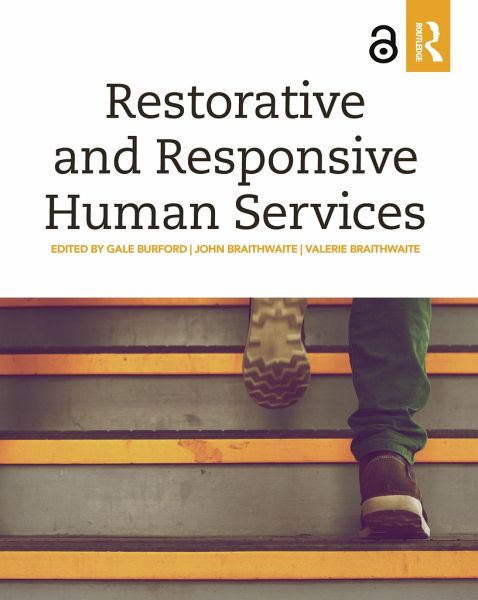
Restorative and Responsive Human Services
Versandkostenfrei!
Versandfertig in 1-2 Wochen
66,99 €
inkl. MwSt.

PAYBACK Punkte
33 °P sammeln!
In Restorative and Responsive Human Services, Gale Burford, John Braithwaite, and Valerie Braithwaite bring together a distinguished collection providing rich lessons on how regulation in human services can proceed in empowering ways that heal and are respectful of human relationships and legal obligations. The human services are in trouble: combining restorative justice with responsive regulation might redeem them, renewing their well-intended principles. Families provide glue that connects complex systems. What are the challenges in scaling up relational practices that put families and prima...
In Restorative and Responsive Human Services, Gale Burford, John Braithwaite, and Valerie Braithwaite bring together a distinguished collection providing rich lessons on how regulation in human services can proceed in empowering ways that heal and are respectful of human relationships and legal obligations. The human services are in trouble: combining restorative justice with responsive regulation might redeem them, renewing their well-intended principles. Families provide glue that connects complex systems. What are the challenges in scaling up relational practices that put families and primary groups at the core of health, education, and other social services?
This collection has a distinctive focus on the relational complexity of restorative practices. How do they enable more responsive ways of grappling with complexity than hierarchical and prescriptive human services? Lessons from responsive business regulation inform a re-imagining of the human services to advance wellbeing and reduce domination. Readers are challenged to re-examine the perverse incentives and contradictions buried in policies and practices. How do they undermine the capacities of families and communities to solve problems on their own terms?
This book will interest those who harbor concerns about the creep of domination into the lives of vulnerable citizens. It will help policymakers and researchers to re-focus human services to fundamental outcomes at the foundation of sustainable democracies.
This book is available for free in PDF format as Open Access from the individual product page at www.routledge.com. It has been made available under a Creative Commons Attribution- Non Commercial-No Derivatives 4.0 license.
This collection has a distinctive focus on the relational complexity of restorative practices. How do they enable more responsive ways of grappling with complexity than hierarchical and prescriptive human services? Lessons from responsive business regulation inform a re-imagining of the human services to advance wellbeing and reduce domination. Readers are challenged to re-examine the perverse incentives and contradictions buried in policies and practices. How do they undermine the capacities of families and communities to solve problems on their own terms?
This book will interest those who harbor concerns about the creep of domination into the lives of vulnerable citizens. It will help policymakers and researchers to re-focus human services to fundamental outcomes at the foundation of sustainable democracies.
This book is available for free in PDF format as Open Access from the individual product page at www.routledge.com. It has been made available under a Creative Commons Attribution- Non Commercial-No Derivatives 4.0 license.





